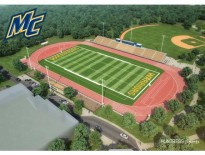Half of all workers in Massachusetts held a bachelor’s degree or higher in 2016, marking the first time any U.S. state has reached that educational threshold, according to a report released Wednesday by the independent Massachusetts Budget and Policy Center.
The same analysis points to a growing wage chasm in the state, with the college-educated earning on average 99 percent – or nearly double – the wages of those in the labor force with only a high school education. That difference, often referred to as the “college wage premium,” was 56.6 percent across the entire nation in 2016.
In Massachusetts, 50.2 percent of individuals participating in the state’s labor force had attained at minimum a four-year degree from a college or university in 2016. The next highest states were New Jersey (45.2 percent), New York (43.7 percent), Maryland (43 percent) and Connecticut (42.7 percent), according to the CPS data. The U.S. average was 35.5 percent in 2016.
The numbers point to a dramatic shift in recent decades. In 1979, only about 20 percent of the Massachusetts labor force had bachelor’s degrees, and the college wage premium was 50 percent.
The findings were consistent with previous data showing Massachusetts to be among the most educated states in the nation, with an economy heavily reliant on the presence of a highly skilled workforce. But the authors noted a downside as well, as workers without a college education continue to fall further behind in wages while the expense of attaining those badly needed degrees gets steeper for those with limited financial resources.





